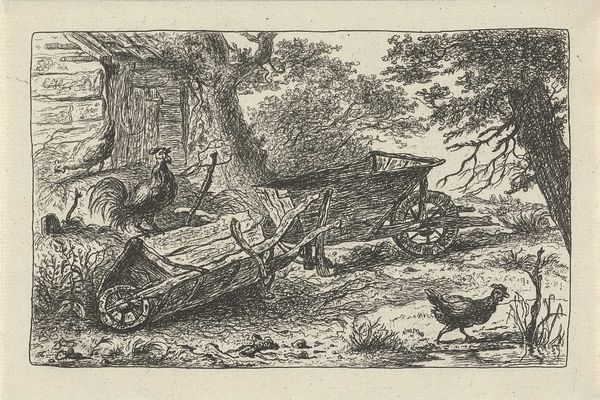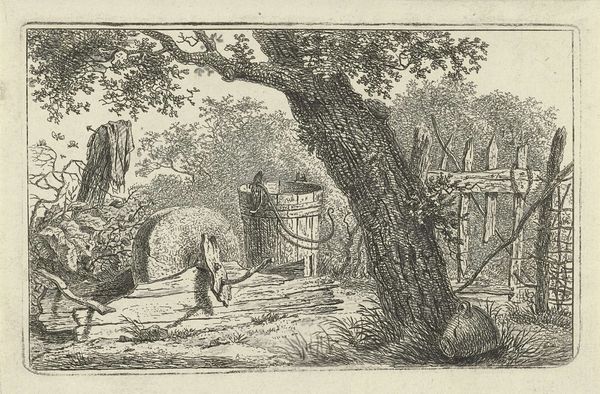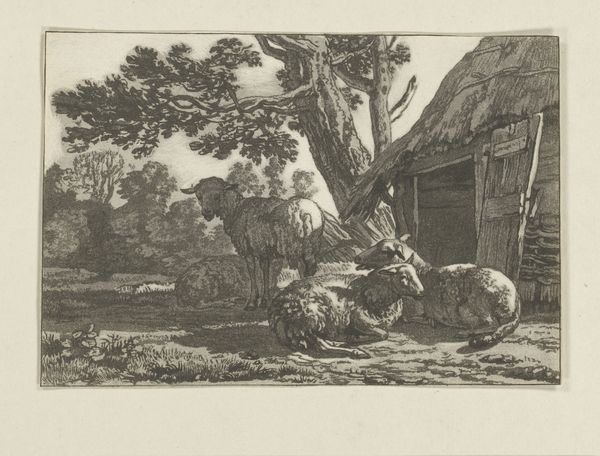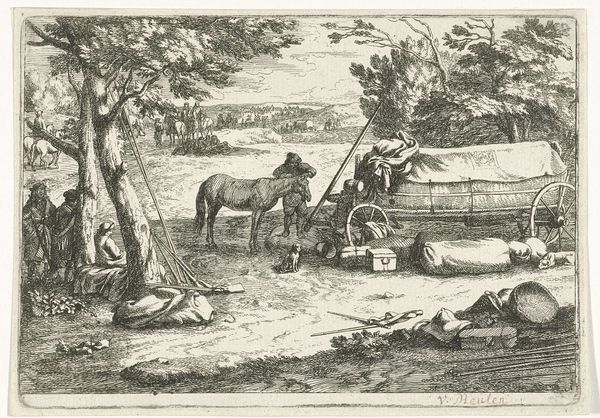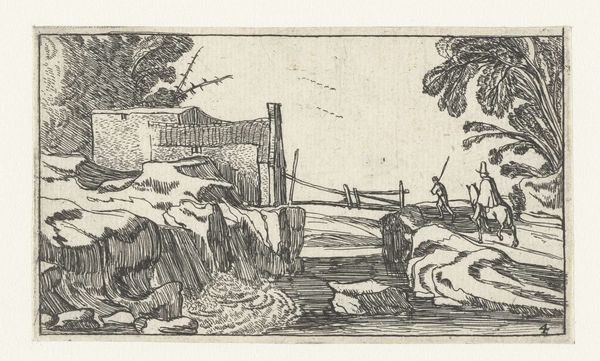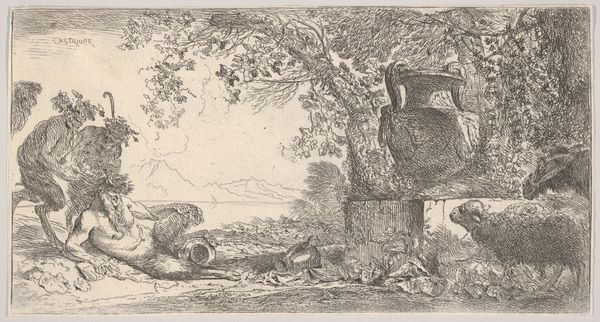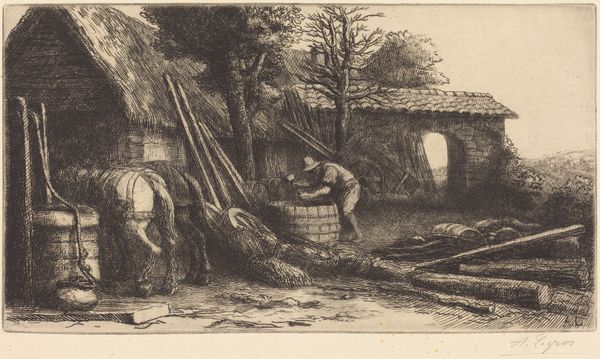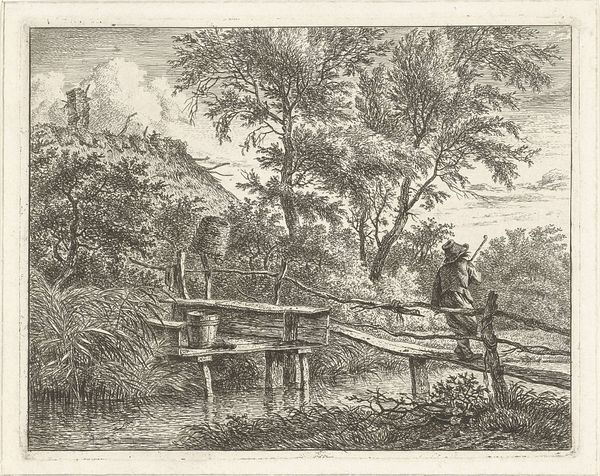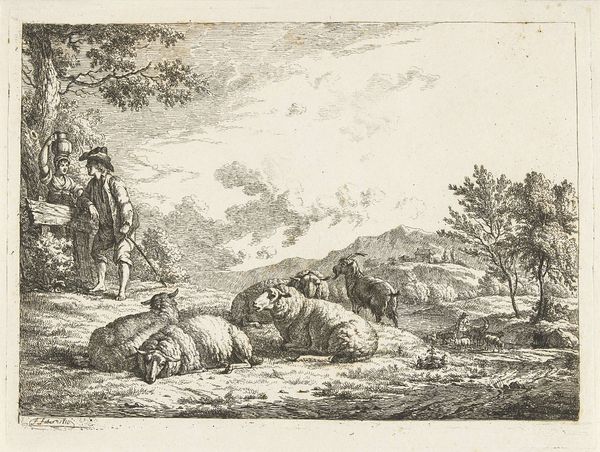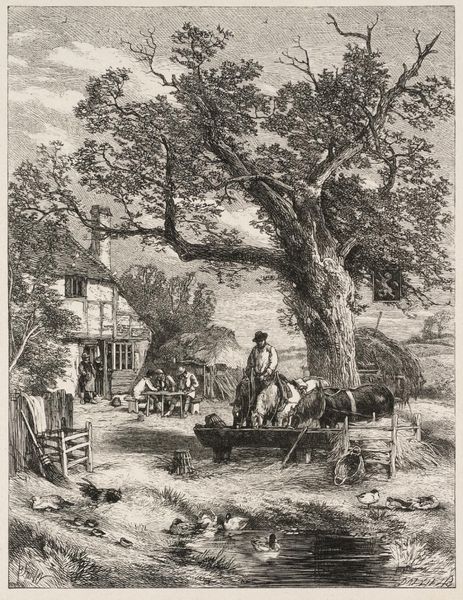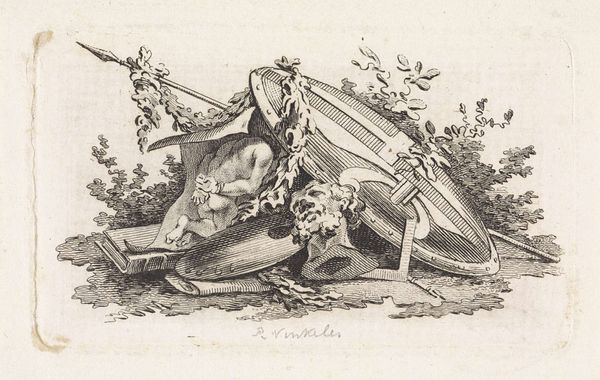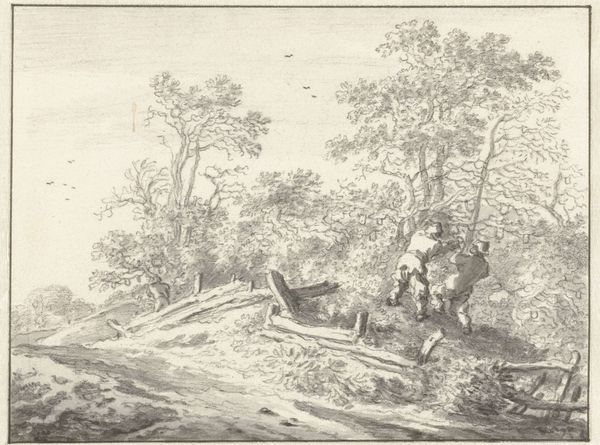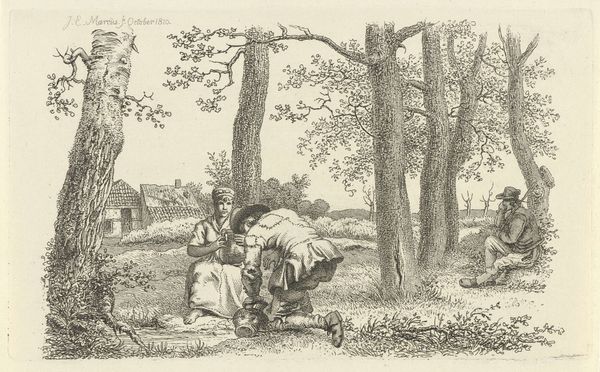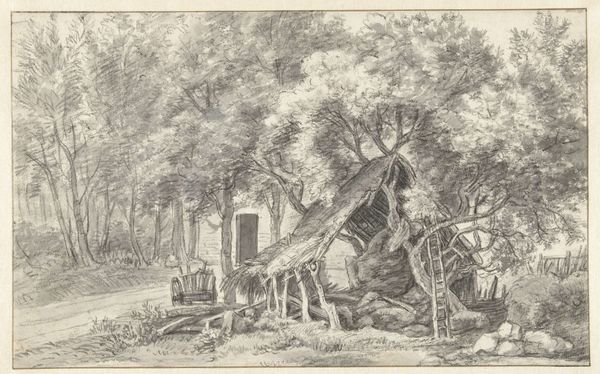
etching
#
dutch-golden-age
#
etching
#
old engraving style
#
landscape
#
ink line art
#
linework heavy
#
thin linework
#
genre-painting
#
realism
Dimensions: height 101 mm, width 163 mm
Copyright: Rijks Museum: Open Domain
This is ‘Two Wheelbarrows’ by Hermanus Fock, created sometime between 1766 and 1822, rendered in etching. During this time, there was a transition in Europe from feudal agricultural systems to more capitalist models. This shift deeply affected the lives of rural workers and the broader understanding of labor. Fock's choice to depict wheelbarrows – simple tools central to manual labor – invites reflection on the dignity, as well as the potential exploitation, inherent in such work. Note the animals around the wheelbarrows, symbols of rurality and perhaps simple sustenance, in juxtaposition with the human-made tools. This adds a layer of commentary on the relationship between humans and the natural world. Ultimately, this etching evokes a sense of the everyday, encouraging us to consider the lives and labor that underpin societal structures. The scene remains imbued with the quiet dignity of the commonplace.
Comments
No comments
Be the first to comment and join the conversation on the ultimate creative platform.
